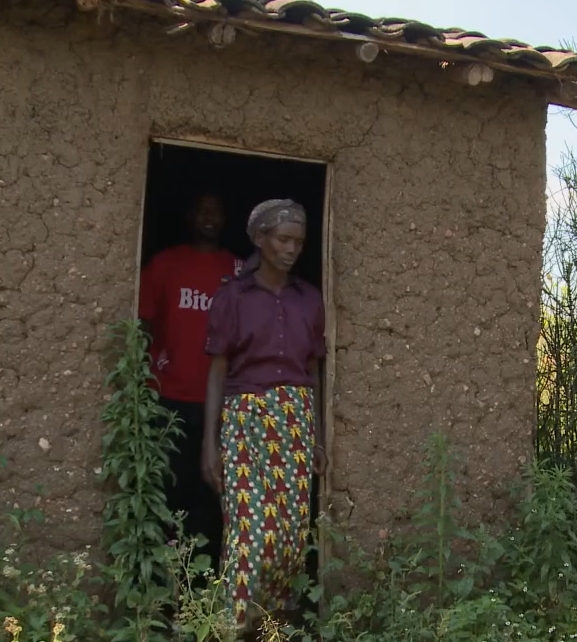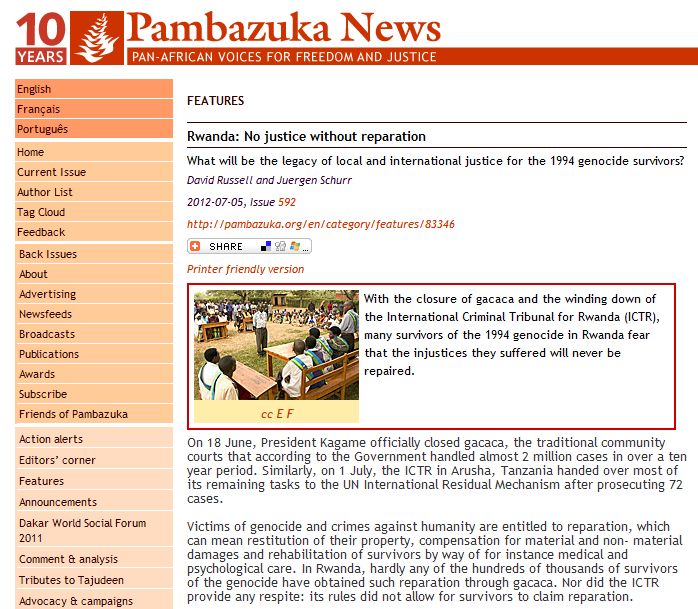Post-Gacaca compensations for survivors: A missed opportunity for Reconciliation in Rwanda by Albert Gasake In this paper, Albert Gasake, Legal Advocacy Coordinator at SURF, examines the problems that persist for survivors in obtaining adequate and meaningful compensation for material assets … Continue Reading »





